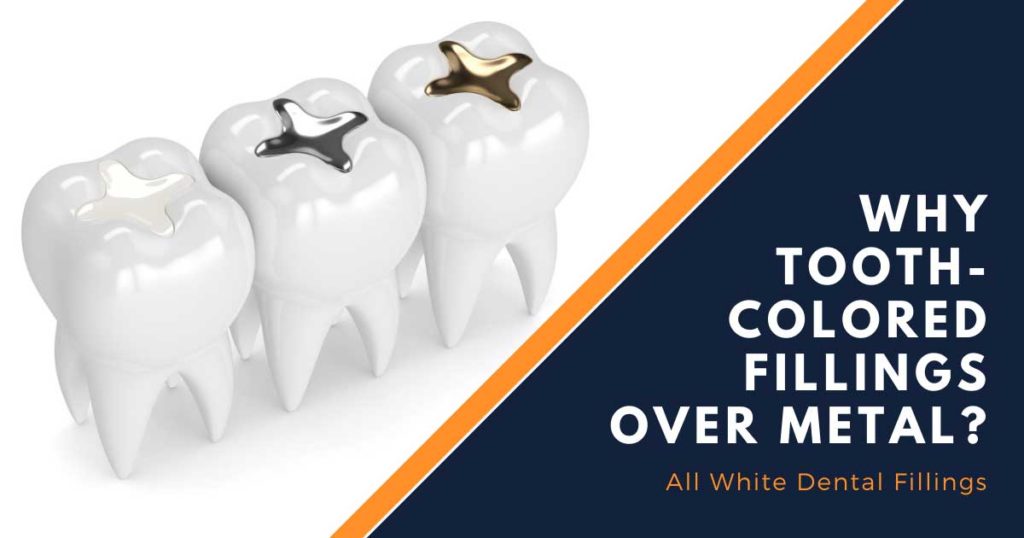
Dental Fillings in Farmington: Why Tooth-Colored Fillings Over Metal?
If you have a decayed or cracked tooth, your dentist may recommend a dental restoration such as a dental crown or filling to repair the damage. Dental fillings are available in many varieties, including tooth-colored and metal. Which is right for you, and what should you know about them?
What Are Tooth-Colored Fillings?
Tooth-colored dental fillings, also known as all-white fillings, repair the damaged portion of a tooth with a material that matches the appearance of the surrounding tooth. Studies show that tooth-colored fillings are safe, reliable, and long-lasting. Combining their durability with being aesthetically pleasing, makes them the preferred material for this dental restorations most often.
The material used to create tooth-colored fillings is a blend of plastic resin and silica fillers. When combined, these ingredients mimic the qualities of natural tooth structures. This makes it possible for tooth-colored fillings to remain durable and translucent as they strengthen the integrity of the treated tooth.
How Are All White Filling Applied?
Many patients request all-white fillings to enjoy their distinct benefits:
- Natural appearance
- Durability
- Safety
- Longevity
Even the treatment process is easy! After numbing the area to prevent pain, your dentist removes any existing decay and applies the filling material directly into the tooth. It takes a few moments for the tooth-colored filling to bond with the tooth, and then the procedure is complete.
Since tooth-colored fillings look natural, they can be used on highly visible teeth, not just the back molars.
Important Considerations for Metal Fillings
Before all-white fillings were developed, most patients received metal fillings, also called amalgam fillings, to treat cavities or tooth damage. Dental amalgam is composed of silver, tin, copper, and mercury, all of which create a gray or silver appearance on the treated tooth.
Amalgam fillings have unique drawbacks and benefits. The use of metal makes amalgam fillings strong, durable, resistant to decay, and more affordable than other filling materials. However, these benefits are often outweighed by the drawbacks:
- Increased tooth sensitivity
- Presence of elemental mercury with toxicity concerns – the ADA has done extensive research and has deemed amalgam restorations safe and the levels of mercury found to not be harmful to patients, however, we understand this concern from patients.
- Removal of healthy tooth structure required for filling to bond to the tooth
- Appearance does not mimic natural tooth color so can stand out in the mouth
Be sure to discuss your oral care needs with your Farmington dentist to determine which filling is best for your smile. The Thompson Dental Group team is committed to helping all patients achieve the highest quality dentistry. Call to schedule your appointment today!
